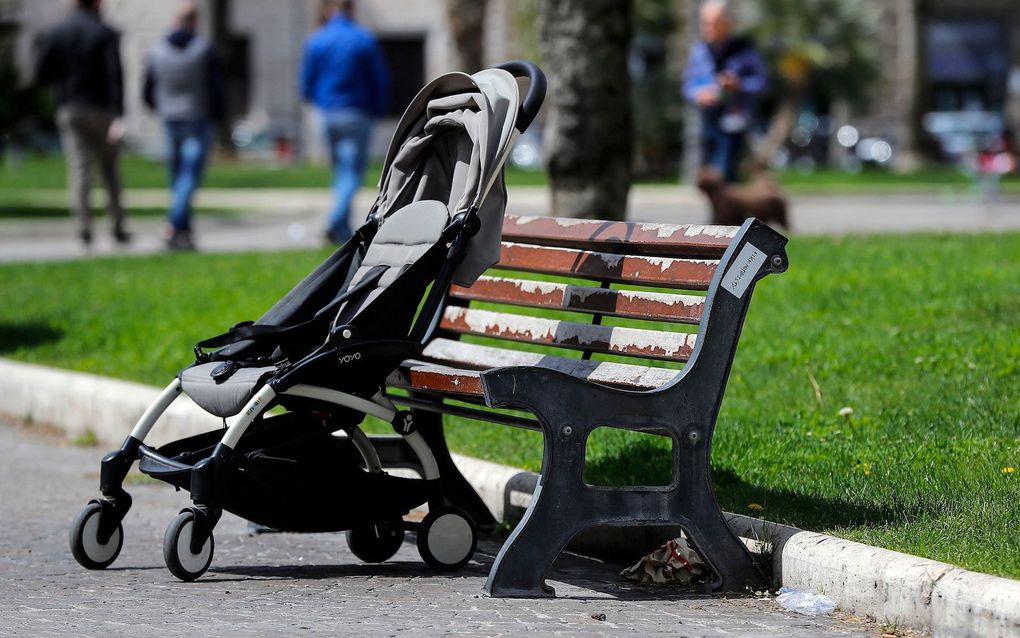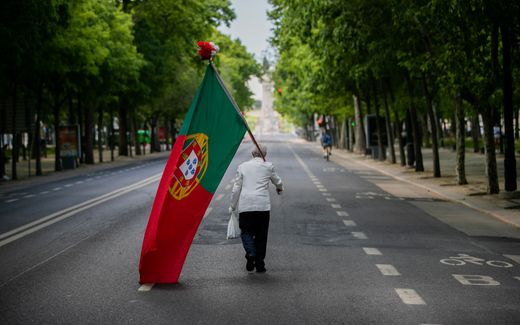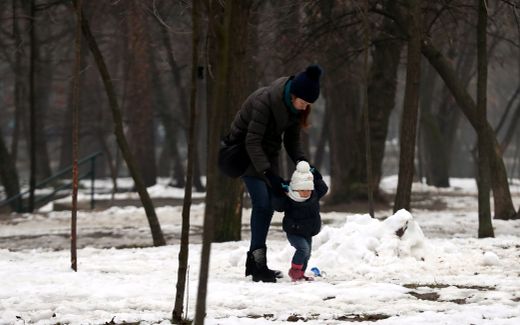Weekly column: In Italy, women have enough reasons not to become mother

Many strollers in Rome remain empty. Photo EPA, Riccardo Antimiani
Christian Life
Expecting my second child while 29 years old. As a young woman, living in the centre of Rome, I am an exception. Many people compliment me, others are interested in why I made this choice, but many consider it irrational.
When I go to the maternity ward at the hospital or meet other mothers, I am always one of the youngest. It has not always been like this. If I had been of my mother's generation, I would have fit in perfectly with other women of my age and the dominant culture.
For some years now, however, the situation has been changing. The declining rate of parenthood in Italy is becoming a social problem and one that frightens the economy and calls into question the future of the country.
Chiara Lamberti (1992) was born and raised in Naples, Italy. She studied Communication Sciences and has a master's degree in Information, Publishing and Journalism. She also has a degree in theology. She writes for the Italian Evangelical Alliance and contributes to the Protestant magazine Loci Communes. With her husband and daughter she lives in Rome.
The falling birth rate is a problem that affects the whole of Europe and perhaps other westernised areas of the world. But in Italy, it is becoming a real scourge. The official data speak of a declining trend in this latest pandemic period.
Half as many children as in 1970
Italy is getting older and older. Many are dying, but fewer and fewer families have children. The fertility rate is at an all-time low, putting Italy at the bottom of the European league table. Since 1970, the child population has decreased by half, and the elderly population has doubled, changing the country's demographic makeup.
Politics and media have begun to talk about this problem in an alarmed manner. The trend worsened, especially during the Covid-19 pandemic. Economists are frightened for the future of a country where the workforce is shrinking, and more and more elderly people are seeking assistance from the state.
Everyone is very concerned about the country's GDP (Gross Domestic Product). Despite the crisis, including the economic crisis generated by Covid, efforts are being made to organise something with bonuses and financial support systems for families who choose to have children.
Salary allows only one child
Almost all analyses of the causes of the problem point toward the economic crisis. Young people cannot find work. It is increasingly too late for them to get stable jobs. Italian salaries only allow families to support one child. In addition, state welfare is deficient in providing suitable structures and systems to enable parents to combine work and parenthood in a fair manner.
Apart from this, women do not yet experience full equality in Italy. Women who choose motherhood in our country are penalised in the workplace, often forced to leave their jobs or lose their leading positions in companies. This causes them to fall behind in their careers or other areas.
Mother experience social isolation
I know all this is true. As an Italian living in an urban area, I experience all the difficulties women face when choosing to have children. There are many uncertainties about the future and many fears. Access to kindergarten is not a given, the world of work is hostile to this choice, and many structural barriers make even the most trivial movements difficult. There are no support networks, and mothers often experience social isolation, more than fathers do.
Other social pressures experienced by women are also important to consider. Feminist movements have entirely devalued homelife. The emotional and sexual independence of one's relationship is regarded as an outstanding achievement for women and one they should pursue.
The relationship with one's own body has also changed. On the one hand, feminist movements stimulate women to use their bodies as they wish. On the other hand, it prevents them from feeling comfortable in a body that goes beyond the canonical standards of beauty and changes due to pregnancies. In short, there are many reasons why women are increasingly trying to postpone or avoid motherhood.
Church must not become like dominant culture
As Christians, we need to look at this reality and ask ourselves about the challenges the churches meet and the opportunities this reality presents. Suppose the Italian churches do not try to create a debate and a new Biblical perspective on the issue of parenthood. In that case, they will take the same ways of thinking that dominate our culture. More Christian families will then be overwhelmed by the problems that afflict all other families.
The challenge for the churches is to preach the sanctity of marriage to their members and proclaim God's blessing in opening up to parenthood. Churches must proclaim that children are a gift from God and that the creation mandate is still valid even in these difficult times. If churches preach this, Christian families will find confidence in Christ's promises to go forward even when the economic and social situation is uncertain.
Gospel-rooted families will have great opportunities for witnessing. The people that God has placed around us will see this counter-cultural example. Hopefully, they learn to rely on the same gospel. In addition, churches can be small and supportive communities when a state in crisis has not thought of how to support population growth with serious welfare.
Then, this demographic crisis is an opportunity to present the gospel even if the future looks very uncertain.
Christian mothers are younger
In my church, this is a reality. Being located in the centre of Rome, it has to deal with this culture and difficulties. So, a lot of attention is paid to this issue.
The preaching encourages families to remember God's promises and the Christian perspective on marriage and the family. Children are not excluded from the Sunday service. They were getting involved with dedicated time for them, different activities and encouraged to relate to the adults in the community. This is to encourage families to feel supported but also to highlight the Biblical reality that God's people include women, older men and children.
But if I look around in church on Sunday morning, I see that this does not mean that Christians have larger families than other people in Rome. Many of us have one child or two. The main difference is that mothers are younger. That was what I was thinking about in the hospital's waiting room of the maternity ward.
Related Articles






